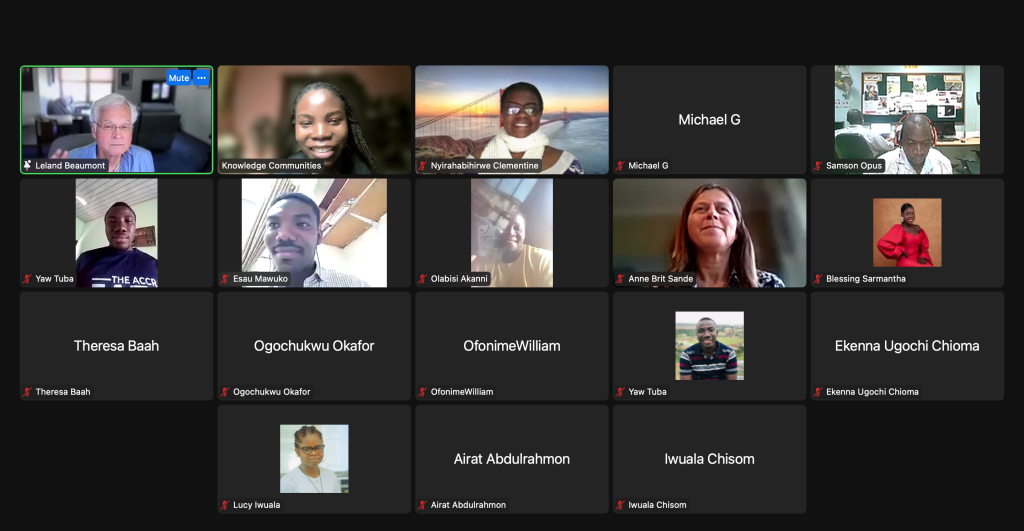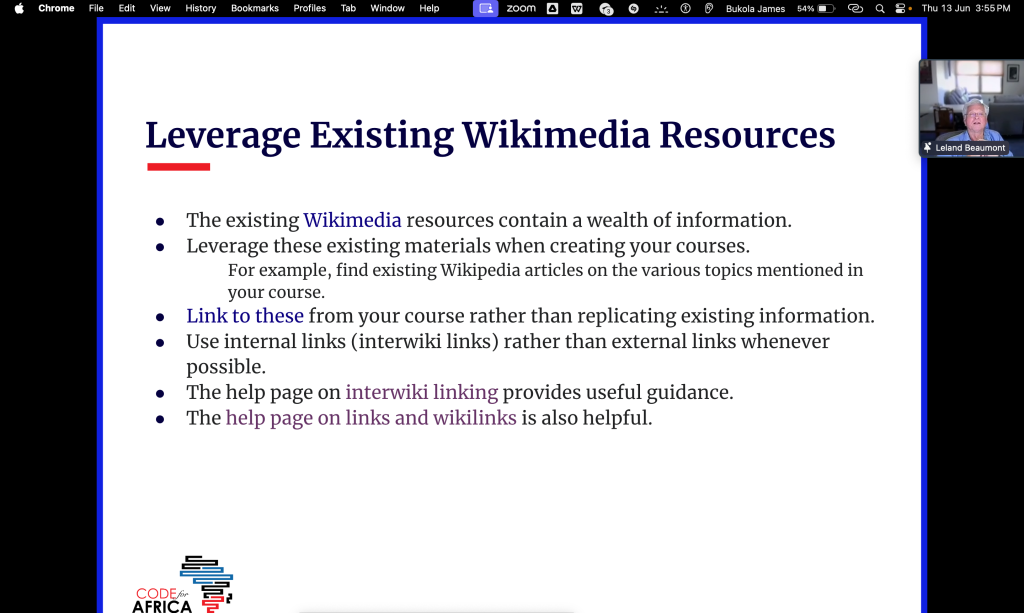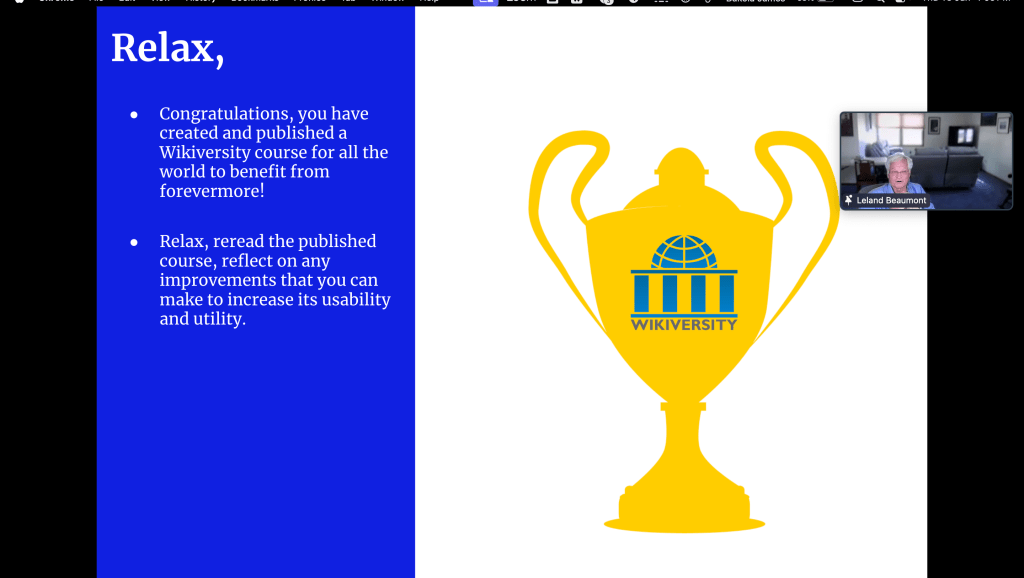On June 13, 2024, Code for Africa’s African Wikipedia Alliance( AWA), hosted a bi-weekly webinar for its Anglophone community titled “Introduction to Wikiversity.” The online meetup was facilitated by Lee Beaumont, an Independent Researcher from New Jersey, USA and moderated by Bukola James, the Community Coordinator of AWA. The session had 28 participants, including project leads and volunteer Wikimedians from Cameroon, Ghana, Nigeria, Norway, Rwanda, and Uganda. It provided participants with an introduction to the basics of Wikiversity, knowledge on planning, and guidance on developing course drafts for publication on Wikiversity.

Key Highlights
The recent webinar, facilitated by Lee, began with an overview of the learning objectives, which included creating, improving, and learning from Wikiversity courses. Lee emphasised the importance of Wikiversity in helping educators reach millions of students worldwide with freely available, enduring, and continuously improved educational resources. He highlighted that Wikiversity represents the future of education, transforming traditional learning environments by making education accessible to everyone, everywhere.

The session provided participants with a detailed, step-by-step guide on how to create a course or essay on Wikiversity, covering the following steps:
- Choose a Topic: Select a subject of interest and relevance.
- Identify Related Topics: Ensure the course is connected to broader educational themes.
- Understand Intellectual Property Issues: Be mindful of copyright and licensing.
- Write the Course in a Word Processor: Draft the content offline.
- Choose the Title: Make it clear and concise.
- Include Learning Objectives: Define what learners will achieve.
- Leverage Existing Wikimedia Resources: Utilise available tools and content.
- Include Images, References, Assignments, and Reading Lists: Enhance the course with diverse resources.
- Choose Categories: Classify the course for easier navigation.
- Edit and Import the Document: Transfer the content to Wikiversity.
- Preview and Publish the Document: Ensure everything is correct before making it public.
- Establish Useful Links: Connect to other relevant resources.
- Relax, Reflect, and Repeat: Continuously improve the course.
Lee also guided participants on how to develop materials, focusing on:
- Developing the course in a word processor.
- Carefully choosing the title.
- Leveraging existing Wikimedia resources.
- Choosing appropriate categories.
- Publishing the course.
Participants gained insights into planning and structuring course drafts for effective publication, engaging diverse participants in educational initiatives, and the global reach of Wikiversity beyond traditional classroom settings. The training underscored Wikiversity’s role in promoting open education in Africa and enhancing global learning communities.

Conclusion
The session concluded with a Q&A segment, where participants could ask questions and seek further clarification. Lee offered words of encouragement, urging participants to actively engage with the Wikiversity platform by creating courses and essays. He stressed the importance of initiating the “Great Book of Africa” course to close the diversity gap in the existing “Great Books” course he developed. This engaging and informative webinar not only equipped participants with the necessary tools and knowledge to contribute effectively to Wikiversity but also prepared them for the next webinar on creating courses on Wikiversity. It fostered a sense of community and collaboration among Wikimedians, paving the way for future educational initiatives and projects.
For those interested in revisiting the session or those who might have missed it, the recorded version is available on the community programmes page and do well to test your knowledge on our academy Africa. Ensure you are registered for the upcoming CfA WiR Bi-weekly webinar and immerse in our vibrant community. To stay abreast of our initiatives, complete this form, and let’s shape the future together!

Can you help us translate this article?
In order for this article to reach as many people as possible we would like your help. Can you translate this article to get the message out?
Start translation